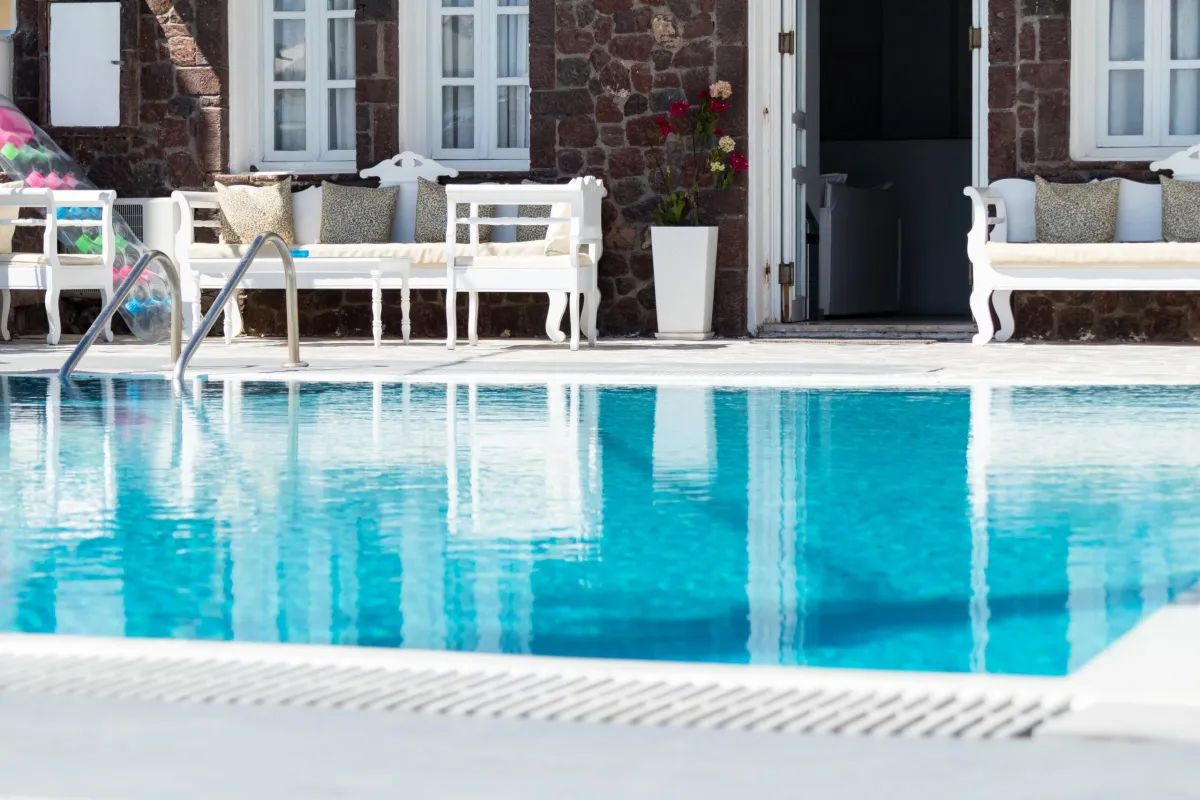
Is a Pool Worth the Splurge? Here's What You Need to Know
Thinking about getting a pool? Before you dive in, there are a few important things to think about. From the cost and upkeep to the space and rules in your area, there’s a lot to consider. In this guide, we’ll break down the key factors to think about so you’ll have a clearer understanding of what it takes to own a pool and be better equipped to decide if it’s the right choice for you and your family.
Some of the links in this post may be affiliate links, you can read my full disclosure here or look for more information at the bottom of this post.
Space
Not all backyards are designed to accommodate a pool either in the ground or above it. You need to look at your usable space, how you will maneuver the yard once the pool is in it, and what you will have to sacrifice to have your pool. In some cases, a smaller above-ground pool will work better for smaller yards, while for bigger spaces, designating a dedicated pool area away from frequently used areas can work well, too. But be practical about your outdoor space and how you will configure the pool.
Check Your Garden for Wires or Utilities
If you want an in-ground pool, you must check if there are any underground wiring or sewers that could be affected by any excavation work. You can dial 811 or contact your local 811 center. The location of these utilities could prevent you from having a pool in that area unless you want to pay for them to be relocated. So before you start digging any holes or signing any contracts for pools to be built, be confident there is nothing that will affect your ability to move forward with the project.
This also applies to any overhead wires. For safety reasons, pools cannot be installed underneath overhead wires. If you’re serious about having a pool installed and this is a problem, you can get them rerouted for a fee.
Proximity to Water
If you are building an inground pool, your proximity to any body of water will play a factor in whether or not you can have one. You need to be at least 100 feet away from water due to the water table potentially being too high to accommodate you putting a pool in the ground. You’ll need to rethink your location if this applies to you or opt for an above-ground pool instead.
Is The Ground Flat?
Putting a pool in or on flat ground isn’t an issue, but if you have any kind of slope in your yard, it can cause added complications and increase the cost considerably. For example, if you’re on a hill, you will need to reshape your yard or build a retaining wall to prevent your pool from moving. This is a big possibility if the ground shifts, and it might result in your pool making its way downhill into neighboring properties, and no one wants that. So, be aware of the slope of the ground on your property while making your considerations.
Set Back Requirements
Circling back to the space you have in your yard, setback requirements are the requirements to have a certain amount of space around your pool and the edges of your property. Your city or council services can provide you with this information, and these requirements will impact the size and style of the pool you will be able to have on your property.
At this point, you should also consider the safety features you will need, such as fencing and edging around the pool and handrails if required. You need to meet legal requirements for setback dimensions and safety around pools to be approved.
Check Restrictions
While checking your setback restrictions, it’s a good idea to review if any other type of restrictions apply to your property or neighborhood that will affect whether you can install a pool.
These types of restrictions include;
Any easements on the property – no pools are allowed on properties with easements attached to them.
Whether or not your home is in a protected area, this doesn’t automatically mean you cannot have a pool, but there will be more steps to follow and requirements to meet.
If you live in a historic district, you will need to find out your local council’s policy on adding pools to historic homes. You will need approval for the work to continue. You will typically be required to retain the original characteristics or build a pool within keeping to the style of the area for approval.
Access to The Property
This is typically something those having an in-ground pool will need to consider. Still, suppose you don’t have appropriate access to your backyard for contractors to access it while they work. In that case, you might have to look at how to proceed, as you might face longer build times and higher costs due to them having to source smaller equipment or make changes to how they work to complete the job.
Upkeep
Finally, you need to be confident you can afford the pool’s upkeep and maintain it as required. This includes buying safety equipment and maintaining safety flooring, barriers, and access points out of the pool. It requires you to clean your pool, check pH levels regularly with the correct pool chemicals, and pay for things like pool insurance, cleaning services, repairs, and so on during the rest of the time you live on the property.
See why Saltwater pools are gaining in popularity.
Of course, creating and installing your pool will be expensive upfront, but the cost doesn’t end there once it’s ready to use. You need to be confident you have the money to upkeep your pool and the time and dedication to care for it.
So, before you make the final call on getting a pool, take a moment to think about the costs, maintenance, and impact on your property. By considering all these factors, you’ll be better prepared to decide if a pool is the right fit for you. Whether you decide to splash out on a pool or explore other options, we hope this guide has given you the clarity you need to make the best choice for your home and lifestyle.
*As an Amazon Associate, I earn from qualifying purchases, but if I am recommending an item in my post, it is only because I have used it myself or have done enough research on the product to feel it is a good fit for my readers.
© 2023 Freedomkit | Powered by Freedomkit.ai

